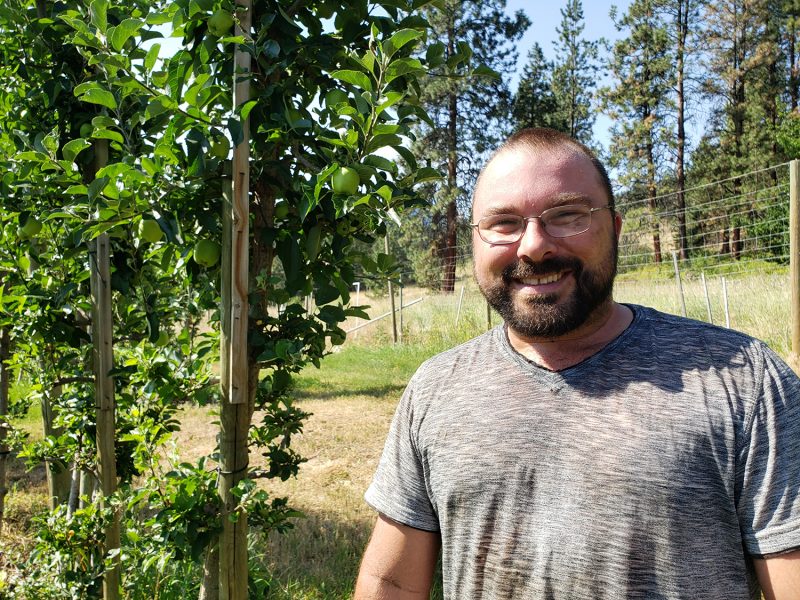Okanagan tree fruit producers are seeing some light – and heat – at the end of the tunnel as high summer reaches its peak.
“We’ve been seeing what I would [call] challenging growing conditions for apples even in the Okanagan this year. It has been very cold, very dry and then very wet,” says Adrian Arts, provincial tree fruit specialist and owner of Kamla Orchards in Summerland.
Conditions have meant greater disease pressure but vigilant producers are seeing high-quality fruit.
“We are definitely lighter than expected on crops across the board. Everything is down this year but having said that … the cherries look phenomenal,” he says.
The market is responding well to the large fruit size, sugar content and flavour, Arts says.
“The returns right now are extremely solid for cherry producers. We did have some rain, which is always a challenge, but it looks like we have a good two to three weeks of potential dry weather,” he says.
Warm temperatures will further improve the sugar content, Arts adds.
Apple crops in the Okanagan, Creston and Similkameen areas vary. Some blocks do not have any fruit and others have smaller apple crops with larger fruit, Arts says. The latter situation could present producers with better market access and returns, he adds.
Some apple growers are dealing with scab and fire blight, while others were hit by hail.
Sea Cider Farm and Ciderhouse founder Kristen Needham Jordan in Saanichton on Vancouver Island has found that her apple orchard is two weeks behind. Aside from a significant tent caterpillar infestation, pest and disease pressure has been low.
“Thankfully, right now the apples that are set on the trees look good and we have started to do some summer thinning to make sure branches aren’t bearing too much fruit,” she says.
The farm has 60 varieties of cider apples plus a handful of plum, peach and pear trees.
While the apples are faring well, Needham Jordan noted that the peach trees did not pollinate and aren’t bearing any fruit.
On the nursery side, Josh Brown of Similkameen Nurseries is dealing with aphids.
“This year has been a particularly tough year for aphids. I’ve never seen so many in my life,” Brown says. “It’s probably costed us between $5,000 and $10,000 in the last three weeks to remediate the aphids.”
To protect his trees, he’s been spraying every five to seven days for the past month, then pruning off aphid damage and reselecting leaders.
Brown estimates it will cost him an additional $10,000 to $30,000 in costs this year to maintain the high standards he sets for his trees.


 Okanagan wine appellations expand
Okanagan wine appellations expand